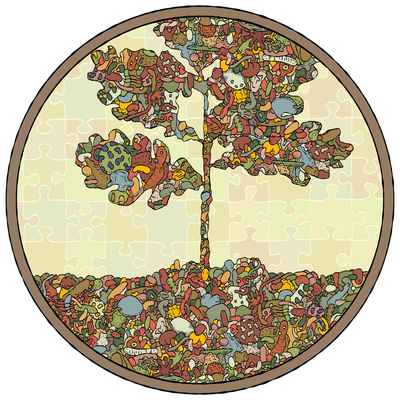Main Content
Subproject 4 - Cross talk between environmental conditions, oak tree performance, and the microbiomes of their soil, endo- and and phyllosphere

Anke Becker, Kezia Goldmann, Luis Daniel Prada-Salcedo, Robert R. Junker, Sofia Edozain-Bagolin, Camilo Andrés Quiroga González
The plant microbiome, i.e. the community of associated microorganisms, plays a crucial role for mutual acclimation to environmental changes and the subsequent evolutionary adaptation (A&A). Beneficial microbes can enhance plant tolerance traits against stress, which reinforces shoot and root protection by modifying phytohormonal levels, antioxidant and enzyme production, osmotic adjustment or biofilm formation to increase water and nutrient uptake, gas exchange and water use efficiency. Since these findings were mainly retrieved from studies on crops or herbaceous plants, it remains little investigated how trees and their microbiomes react to environmental changes, including more frequent and intensified droughts and pathogenic pressures. Hence, SP4 aims to investigate, how oak-associated microorganisms respond to various environmental conditions and stresses. Considering the endogenous rhythmic growth and the modularity of the oak, SP4 intends to determine an oak core microbiome and characterize key stone taxa, which enhance resilience against the applied stressors. To do so, SP4 bridges correlative links revealed from field analyses (SP4a), and experiments with individual bacterial strains and synthetic communities deciphering causal mechanisms (SP4b). Thereby, SP4a uses molecular sequencing tools to monitor bacteria and fungi associated with above- and belowground compartments of DF159 saplings in Ecotron and Tree Canopy Exposition experiments, and along the PhytOakmeter field monitoring sites. SP4b performs microcosm experiments under containment and controlled conditions, which allow experimental testing of hypotheses on microbial effects on trees’ A&A. By integrating complementary data, and using the synergic effort within the research unit, SP4 plans to add to the general knowledge on tree microbiomes, and specifically in understanding beneficial microbial impacts across Phytoakmeter saplings along environmental variation.





